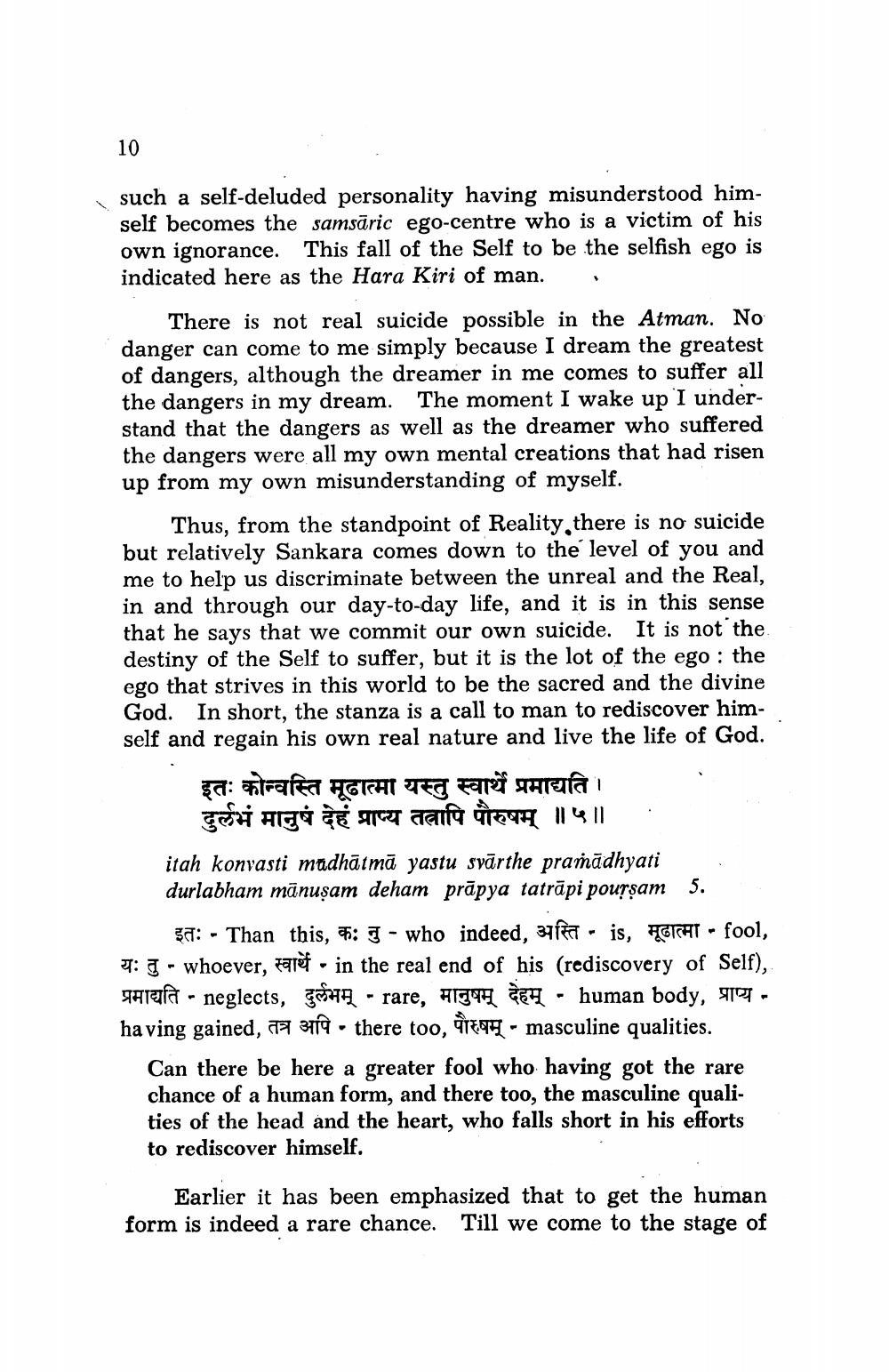________________
10
such a self-deluded personality having misunderstood himself becomes the samsāric ego-centre who is a victim of his own ignorance. This fall of the Self to be the selfish ego is indicated here as the Hara Kiri of man.
There is not real suicide possible in the Atman. No danger can come to me simply because I dream the greatest of dangers, although the dreamer in me comes to suffer all the dangers in my dream. The moment I wake up I understand that the dangers as well as the dreamer who suffered the dangers were all my own mental creations that had risen up from my own misunderstanding of myself.
Thus, from the standpoint of Reality there is no suicide but relatively Sankara comes down to the level of you and me to help us discriminate between the unreal and the Real, in and through our day-to-day life, and it is in this sense that he says that we commit our own suicide. It is not the destiny of the Self to suffer, but it is the lot of the ego : the ego that strives in this world to be the sacred and the divine God. In short, the stanza is a call to man to rediscover himself and regain his own real nature and live the life of God.
इतः कोन्वस्ति मूढात्मा यस्तु स्वार्थे प्रमाद्यति।
दुर्लभं मानुषं देहं प्राप्य तत्रापि पौरुषम् ॥५॥ itah konvasti madhātmā yastu svārthe prasādhyati durlabham mānuşam deham prāpya tatrāpi poussam 5.
इतः - Than this, कः नु - who indeed, अस्ति - is, मूढात्मा • fool, 4: I - whoever, are in the real end of his (rediscovery of Self), प्रमाद्यति • neglects, दुर्लभम् - rare, मानुषम् देहम् - human body, प्राप्य - having gained, 72 3119 . there too, atent - masculine qualities.
Can there be here a greater fool who having got the rare chance of a human form, and there too, the masculine qualities of the head and the heart, who falls short in his efforts to rediscover himself.
Earlier it has been emphasized that to get the human form is indeed a rare chance. Till we come to the stage of




